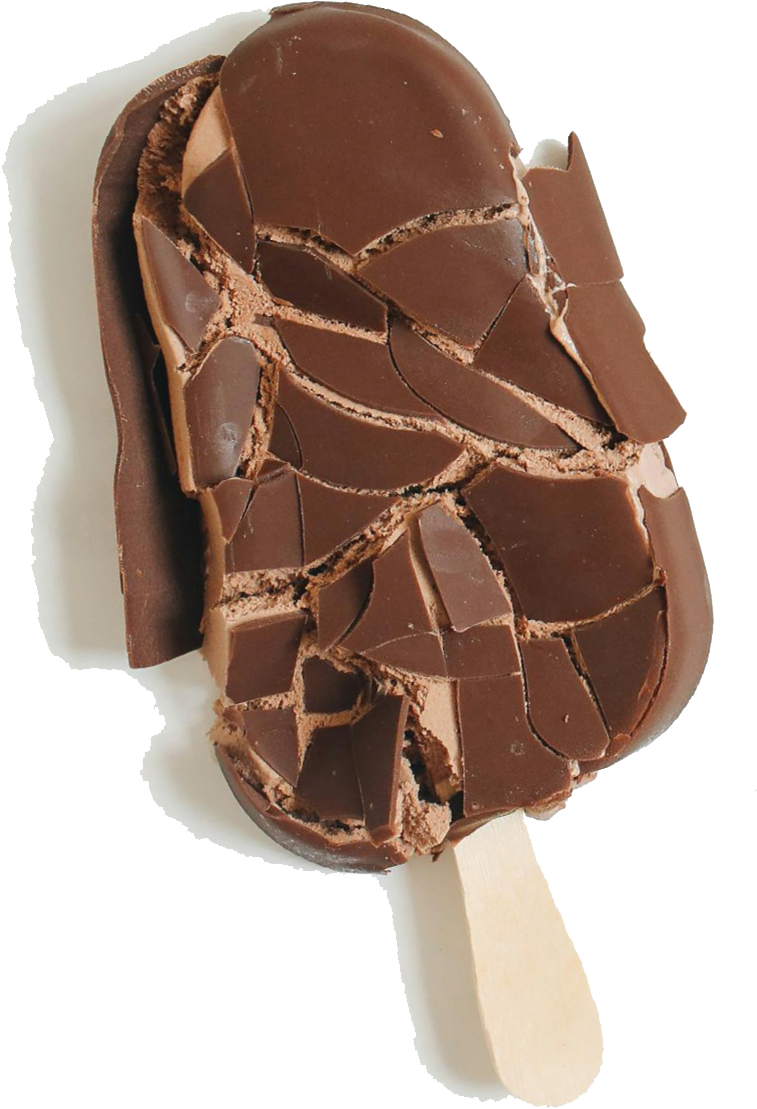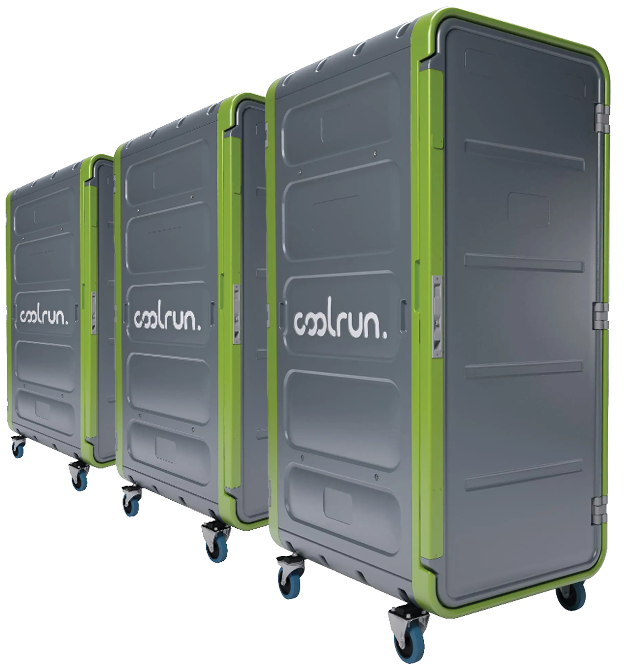Freight Innovation Fund
The Freight Innovation Fund Accelerator, funded by the UK Department for Transport and delivered by Connected Places Catapult, supports SMEs in addressing freight sector challenges. With a £7 million fund, the program aims to enhance efficiency, resilience, and sustainability in freight systems, aligning with the Future of Freight strategy.
Funding was provided to assess the CoolRun™ pods’ ability to reduce operational costs and emissions while maintaining the quality of temperature-sensitive goods through real-world testing. Partners of the trial included: Pilgrim Foodservice, Welch’s Transport, and Cenex.
The Challenges

Much of the current refrigerated food supply chain has evolved over time with inherent expectation of fossil fuel availability. The move to low-carbon food chains and changes in legislation to reduce pollution (e.g., PM10s and NOx to reduce the number of vehicles entering urban areas) will require alternative distribution models to be developed to deliver enhanced carbon efficiency. ‘What good looks like’ will change with time, and future facilities, logistics networks, and food transport methods will need to be re-appraised to support the journey towards Net Zero.
The UK food industry, and in particular, the temperature-controlled sector relies exclusively on the use of diesel to power both the vehicles and the Transport Refrigeration Unit (TRU). Food generates significant environmental pollution with these diesel units both at a total level but also significant quantities in urban areas which have an adverse effect on health. The challenge of moving away from diesel as a primary power source for both the vehicle as well as the TRU will require investment in alternative fuel sources, which come with their own challenges.
Our analysis (corroborated by the Cold Chain Federation) would suggest that around 45 – 50% of food requires temperature-controlled vehicles.
In the UK, food equates to 14% of goods lifted (219 million tonnes) “Domestic road freight statistics, United Kingdom: 2023 – GOV.UK (www.gov.uk)” and around 30.2 billion tonne kilometres moved on vehicles post farm gate “(Table 2) Domestic road freight activity (RFS01) – GOV.UK (www.gov.uk)”.
Our trial partners included Pilgrim Foodservice Limited and Welch Group. All static trials were carried out at Pilgrim Foodservice Limited, Boston (UK) site. For the on-road trials, the pods were filled at the Pilgrim site in Boston and collected and transported using the Welch Group (Duxford) vehicle. As a Palletline founding member, Welch’s helped in transporting the pod via the pallet network.
Five pods were used with defined configuration for the first eight trials, both static and on-road until September. This enabled us to investigate the pod performance under different chilled and frozen conditions. Following this, we were able to perform trials using the Palletline network using a palletised pod. Due to the delay in manufacturing of the remaining pods, we conducted the final trial in the first week of October, using all thirteen pods. This trial helped us demonstrate repeatability and helped us establish robust pod performance.
The Solution

Hubl’s solution, the CoolRun™ pod system is a secure, insulated temperature-controlled container of roll-cage proportions that enables the transport and temporary storage of temperature-controlled goods without reliance on emissions-heavy refrigerated vehicles. The pods are equipped with (our proprietary patent pending) innovative passive cooling system, designed to maintain optimal temperature, using Phase Change Material (PCM) plates that function as transferable, reusable thermal batteries.
The primary energy used to cool the PCM batteries is derived from the depot-based refrigeration drawn from renewable sources and stored within the PCM plates until required.
The Internet of Things (IoT) tracker system located on the pod enables real-time tracking, monitoring, and consignment management throughout the delivery networks. This includes key activities associated with first and last-mile logistics, due to the ability to track the individual pod/consignment as distinct from the vehicle or transport mode. To meet customer requirements, in addition to the original version of the pod design (comprising two doors), we are in the process of developing a side door version to investigate the ergonomics with Pilgrim’s trucks.
Testimonial
‘Cenex’s independent analysis confirmed the environmental and economic benefits of the CoolRun™ pods, further supporting their commercial viability.’
Lead Analyst, Cenex

‘The collaboration with Pilgrim Foodservice Limited and Welch Group was critical to the trial’s success, providing valuable insights into the pods’ real-world performance.’
Project Manager, Hubl Logistics

Key Results

The trials have been successful in providing a deeper understanding of pod performance. Collaborating with project partners has offered valuable insights into the cold chain sector’s requirements. The data gathered throughout the trials will contribute to making the pods not only more efficient but also cost-effective and environmentally friendly.
Key highlights of the trails include:
- Pods maintained chilled temperatures below 5 °C for up to 15 hours and below 8 °C in a 24-hour trial period.
- Frozen products maintained below -15 °C for up to 9 hours in trials.
- CoolRun™ demonstrated flexibility across various fleet types (e.g., vans, trucks) without the need for additional modifications.
- Trials demonstrated the ability for pods to be transported via a non-refrigerated network from a supplier to a final destination.
- Total GHG emissions saving of 10.5% compared to a refrigerated lorry with a TRUs equating to 5.1 tCO2e per year per vehicle.
- This includes emissions saving of 1 tCO2e per year caused by refrigerant leakage from a diesel TRU.
- If, instead of the UK grid mix, 100% renewable energy is used to pre-freeze PCM plates, a typical scenario (high weight and 10 pods) would yield additional savings of 0.47 tCO2e per year, i.e. 11.5% savings.
- 4 pence per tonne*kilometer saving compared to a standard TRU 16t vehicle.
- Total Cost of Ownership (TCO) saving of 12.1%.
Talk to a CoolRun Savings Specialist
Let’s crunch your numbers and save you money on our cold chain operations — no obligation.
Book a free 20-minute consultation with one of our energy savings specialists for a personalised savings estimate, tailored advice on financial incentives available to you, and expert guidance on the best next steps for your business.
